NEW CLINICAL STUDY SHOWS DOUBLING IN RESPONSE RATE AND LONGEVITY IN PATIENTS WITH ADVANCED LUNG CANCER USING PERSONALIZED TREATMENT FOR LUNG CANCER COMES OF AGE
Essentially what this study shows is that by using certain methods of testing which chemo drugs will work, using the patients own cancer cells, can double the response rate of the patient to the treatment and longevity of the patient, over current methods used today.
OK, I am no doctor. I went to school for electronics engineering, not medicine, but when I hear of a treatment that can save lives, I want to find out more.
Here is what I found out. Using the processes and course of treatment discovered by Dr. Robert Nagourney, a patient with advanced lung cancer may have double the chance that the chemotherapy will be effective and could also double their longevity during chemo.
I got a chance to speak to the Dr. Nagourney who is responsible for the breakthrough. Dr. Nagourney was great. He was able to talk about some pretty technical science, and break it down so even I could understand it.
This is a very interesting interview. If you have cancer, know of anyone with cancer or just want to know more about it… This interview is for you. – JW
~~~~~~~~~~~~~~~~~~~~~~~~~~~~~~~~~~~~~~~~~~~
 Dr. Robert Nagourney
Dr. Robert Nagourney
In addition to his position as medical and laboratory director at Rational Therapeutics, Robert A. Nagourney, MD, is an instructor of Pharmacology at the University of California, Irvine School of Medicine. He is board-certified in Internal Medicine, Medical Oncology and Hematology.
A native of Bridgeport, Connecticut, Dr. Nagourney completed his undergraduate education at Boston University, earning a BA in Chemistry, Summa Cum Laude, Phi Beta Kappa with Distinction in Biochemistry. He received his medical degree at McGill University in Montreal, Canada, where he was a University Scholar. After completing his residency in Internal Medicine at the University of California, Irvine, Dr. Nagourney received fellowship training in Medical Oncology at Georgetown University in Washington, DC. He went on to complete a second fellowship in Hematology at the Scripps Institute in La Jolla, California, where he was the recipient of the Scripps Institute Young Investigator Award.
In 1986, Dr. Nagourney co-founded Oncotech with Larry Weisenthal, MD, PhD. After serving as the medical director, he left Oncotech in 1991 to focus his full attention on the study of drug-induced programmed cell death in human tumor primary cultures. Recognizing the profound impact that these discoveries would have upon the practice of clinical oncology, he accepted the position of Director of Experimental Therapeutics at Long Beach Memorial in California. Convinced that the broad application of Ex Vivo Analysis had the potential to revolutionize patient care, Dr. Nagourney founded Rational Therapeutics in 1993, where he pioneered the use of “functional profiling” to create the world’s first personalized cancer therapy program.
Two fundamental breakthroughs underlie the success of Dr. Nagourney’s approach. The first was the recognition that cancer reflected a deregulation of cell survival, not cell proliferation. The second reflected an understanding of cancer biology as cancer ecology. Wherein, cancer cells must be studied in their native state, not propagated, sub-cultured nor removed from their stroma, inflammatory and vascular environment.
With more than 20 years experience in human tumor primary culture analyses, Dr. Nagourney has authored more than 100 manuscripts, book chapters and abstracts; including publications in the Journal of Clinical Oncology, Gynecological Oncology and The Journal of National Cancer Institute. As co-investigator on national cooperative trials, Dr. Nagourney is recognized for the introduction of cisplatin/Gemcitabine doublets in the treatment of advanced ovarian and breast cancers.
With the desire to change how cancer care is delivered, he accepted the position as Medical Director of the Todd Cancer Institute at Long Beach Memorial in 2003. In 2008, he returned to Rational Therapeutics full-time to rededicate his expertise to expanding the Rational Therapeutics program, nationally and internationally.
He is a frequently invited lecturer for numerous professional organizations and universities, and has served as a reviewer and on the editorial boards of several journals including Clinical Cancer Research, British Journal of Cancer, Gynecologic Oncology, Cancer Research and the Journal of Medicinal Food.
Clinical Consultation
An onsite clinical consultation with Dr. Nagourney includes an overall assessment of the patient’s condition, a physical examination, as well as a review of medical records and therapies to date. An in-depth comprehensive interview is conducted to ascertain the philosophy and treatment goals of each patient. A report is then written outlining Dr. Nagourney’s opinion and recommendations. As with the EVA-PCD® analysis, we do require payment at the time of service, but as a courtesy will file a claim with your insurance for possible reimbursement. Cost = $500.
Click to view Patients’ Choice and Most Compassionate Doctor awards.
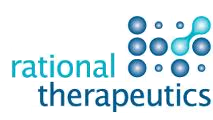 About Rational Therapeutics
About Rational Therapeutics
Rational Therapeutics is a pioneering cancer research institute that specializes in the “functional profiling” of human tumors through the application of a laboratory platform known as the Ex-Vivo Analysis of Programmed Cell Death (EVA-PCD®). Using human tumor microspheroids isolated directly from surgical specimens, these scientists measure which drugs, combinations and new targeted therapies can induce cell death (programmed cell death, one form of which is apoptosis). This process eliminates the “One Size Fits All” administration of cancer treatments enabling physicians to provide truly personalized cancer care.
 About Lung Cancer
About Lung Cancer
Lung Cancer is the leading cause of cancer death in the United States. With 160,340 estimated deaths in 2012. The 5-year survival for all stages of this disease is 14%, with only 7% of Stage III & Stage IV (advanced & metastatic) alive at 5 years. Although cigarette smoking is commonly associated with this disease, a growing number of non-smoking patients are being diagnosed. Lung cancer represents a major public health issue.
The Study
NEW CLINICAL STUDY DOUBLES RESPONSE RATE IN PATIENTS WITH ADVANCED LUNG CANCERPERSONALIZED TREATMENT FOR LUNG CANCER COMES OF AGE
Results of New Study Published in AntiCancer Research
Long Beach, CA… Functional profiling using ex-vivo analysis of programmed cell death (EVA/PCD®) doubles the response rate and improves time-to-progression and survival in patients with advanced lung cancer, according to a Phase II clinical trial conducted by investigators at Rational Therapeutics (http://www.rational-t.com) and the MemorialCare Todd Cancer Institute (Long Beach, CA) and published in the October issue of Anticancer Research.
“Medical oncologists have long pursued methods that can match patients to available therapies,” said Dr. Robert Nagourney, lead investigator. “This study confirms the ability of a laboratory test to accurately predict drug activity for individual patients.”
Functional profiling provides a window into the dynamic process by which human tumor cells respond to therapy. By capturing cells within their natural microenvironment, human biology is recreated in the laboratory. Non-small cell lung cancer – the leading cause of cancer death in the US, for which there has been no change in survival over several decades, – offered an ideal target to test this novel approach.
The article, titled “Functional Profiling to Select Chemotherapy in Untreated, Advanced or Metastatic Non-Small Cell Lung Cancer,” describes results achieved in patients who received first-line chemotherapy based on their individual ex-vivo analysis.
Using only FDA-approved, standard lung cancer drugs available to all oncologists, this process of laboratory selection provided a 64.5 percent response rate – more than double the national average of 30 percent (p = 0.00015), well established in the literature. More importantly, the median overall survival of 21.3 months was nearly two-fold longer than the best results of 13.5 months reported for non-assay based standard treatments. Strikingly, among the Stage IV (metastatic) patients, there are several who remain alive approaching eight years since diagnosis.
“These results suggest that laboratory selection of chemotherapy can change the natural history of this lethal disease,” said Dr. Nagourney. “What makes the EVA/PCD approach unique is its capacity to capture human tissues in their native state, recreating conditions found in the human body.”
Attempts to use gene profiling in this disease resulted in failure and controversy (“How Bright Promise In Cancer Testing Fell Apart.” – Gina Kolata, New York Times, July 7, 2011). Contrary to gene-based methods, functional platforms capture the systems biology of human tumors in real-time providing therapeutics insights that translate directly into improved clinical outcomes.
New Book Highlights Customized Cancer Treatments
In his latest book Customized Cancer Treatment, Ralph W. Moss, PhD, discusses laboratory tests that can save cancer patients’ lives. Dr. Moss, who previously penned Cancer Therapy, Herbs Against Cancer, Questioning Chemotherapy and The Cancer Industry, takes another look at what’s working (and what isn’t) with today’s treatments.
One of my patients who had the opportunity to read the book says, “I just read Customized Cancer Treatment and found it breathtaking. This book should be required reading for everyone.” Before deciding what treatment is best for you, know your options.
Contact Dr Robert Nagourney or Rational Therapeutics:
If you’d like a second opinion or an appointment with Robert Nagourney, MD, please schedule a consultation. An on-site, one hour clinical consultation includes an overall assessment of your condition, a physical examination, as well as a review of medical records and treatments to date. Dr. Nagourney conducts an in-depth, comprehensive interview to ascertain the philosophy and treatment goals of each patient. Following the consultation, you will receive an extensive report detailing Dr. Nagourney’s recommendations.
For information regarding the EVA-PCD platform and whether you are a candidate, please email us at clientservices@rational-t.com, or use the form below to submit your information. You can also visit our “Test Candidates” page for specific details.
You can also call at 562.989.6455 or 800.542.HELP (4357)
Website: Rational-T.com
Related Posts:
Dr. Robert Nagourney Outliving Cancer: The Better, Smarter Way to Treat Your Cancer
~~~~~~~~~~~~~~~~~~~~~~~~~~~~~~
Thank You to
The Blaine Group, Inc.
A Total Communications Agency
8665 Wilshire Blvd., Suite #301, Beverly Hills, CA 90211
O 310/360-1499 · F 310/360-1498
E-mail: devon@blainegroupinc.com

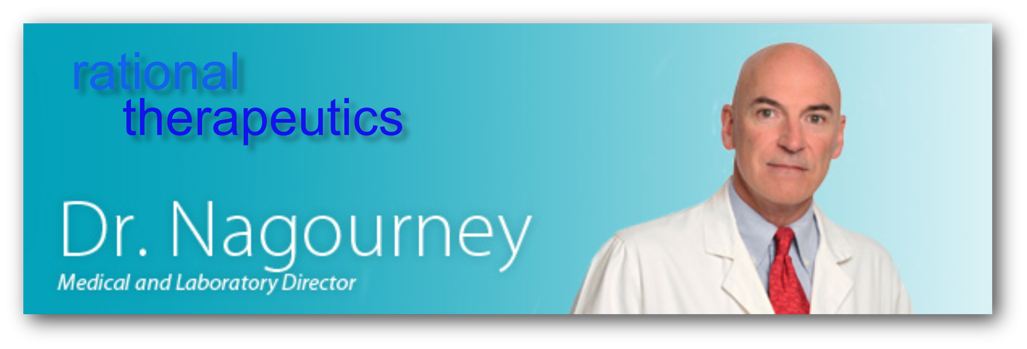
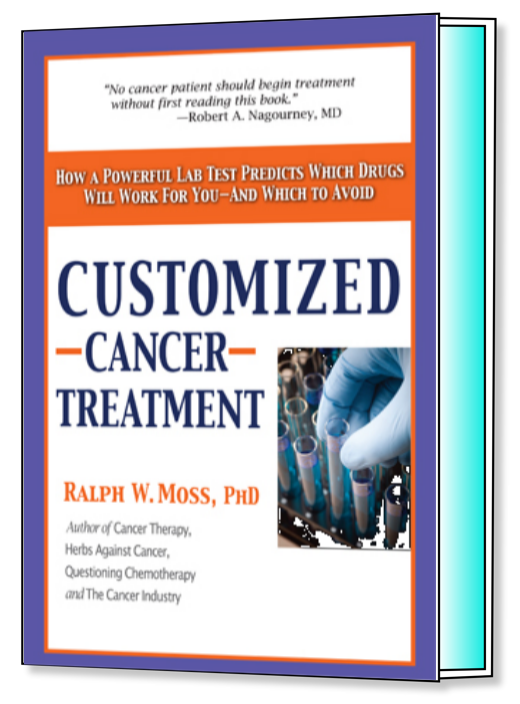
















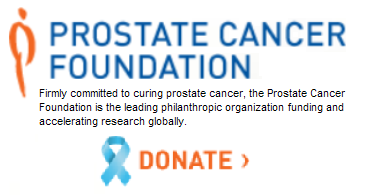







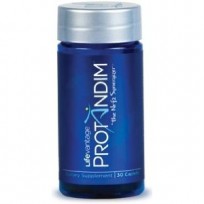 Watch this Video on A Better Way To Fight Harmful Free Radicals
Watch this Video on A Better Way To Fight Harmful Free Radicals

Pingback: Dr. Robert Nagourney Outliving Cancer: The Better, Smarter Way to Treat Your Cancer | On Purpose Magazine
This method saved my life. We utilized Dr. Nagourney’s former colleague Dr. Larry Weisenthal’s outfit (Weisenthal Cancer Group) for my chemosensitivity assay test. I am third generation lung cancer, my mother, grandmother, 2 aunts and 1 uncle all died from lung cancer. I got lung cancer at age 44 although I had quit smoking over 20 years earlier. I planned my funeral.
Hundreds of hours of research later I ended up in New York City with Dr. William Grace who uses this test for his cancer patients. Instead of the traditional doublet, the test found a triplet that had synergistic properties to kill (programmed cell death) the cancer in my body.
It has been three years. I never had to go through 2nd, 3rd, line treatments. The chemotherapy regimes the top tier hospitals in Boston were recommending had no effect in my chemo-sensitivity assay test.
I believe that if I stayed in Boston, I would not be writing this today. The toxic chemotherapy would have killed me.
We tried to get this done by doctors in Boston, but they balked and had to look it up on Google. They were vehemently opposed to this method. It was so frustrating because they were holding my life in their hands, basically saying there is no hope.
Thank you to Drs. Nagourney and Weisenthal.
I will be forever grateful and promoting this life saving test to others.
Thank you for your wonderful interview of my oncologist, Dr. Nagourney. I wish everyone diagnosed with cancer had the benifit of pre-treatment testing like I did. I was surprised to here Dr. Nagourney recall my own story. I’m th patient who was diagnosed with lung cacwr and brain tumors over 4 years ago and wa told to go home and get my affairs in order. But luckily I was referred to Dr. Nagourney who identified a treatment thy pt me into immediate remission, and I have remained healthy and very well ever since!
Thank you for getting the word out that, when tomes to treating cancer, there is a better, smarter way! Pat Merwin
Using only FDA-approved, standard lung cancer drugs available to all oncologists, this process of laboratory selection provided a 64.5 percent response rate – more than double the national average of 30 percent (p = 0.00015), well established in the literature. More importantly, the median overall survival of 21.3 months was nearly two-fold longer than the best results of 13.5 months reported for non-assay based standard treatments. Strikingly, among the Stage IV (metastatic) patients, there are several who remain alive approaching eight years since diagnosis.
Statistical analyses enable researchers to establish “levels” of certainty. Reported as “p-values,” these metrics offer the reader levels of statistical significance indicating that a given finding is not simply the result of chance. To wit, a p-value equal to 0.1 (1 in 10) means that the findings are 90 percent likely to be true with a 10 percent error. A p-value of 0.05 (1 in 20) tells the reader that the findings are 95 percent likely to be true. While a p-value equal to 0.01 (1 in 100) tells the reader that the results are 99 percent likely to be true. For an example in real time, we are just reporting a paper in the lung cancer literature that doubled the response rate for metastatic disease compared with the national standard. The results achieved statistical significance where p = 0.00015. That is to say, that there is only 15 chances out of 100,000 that this finding is the result of chance.